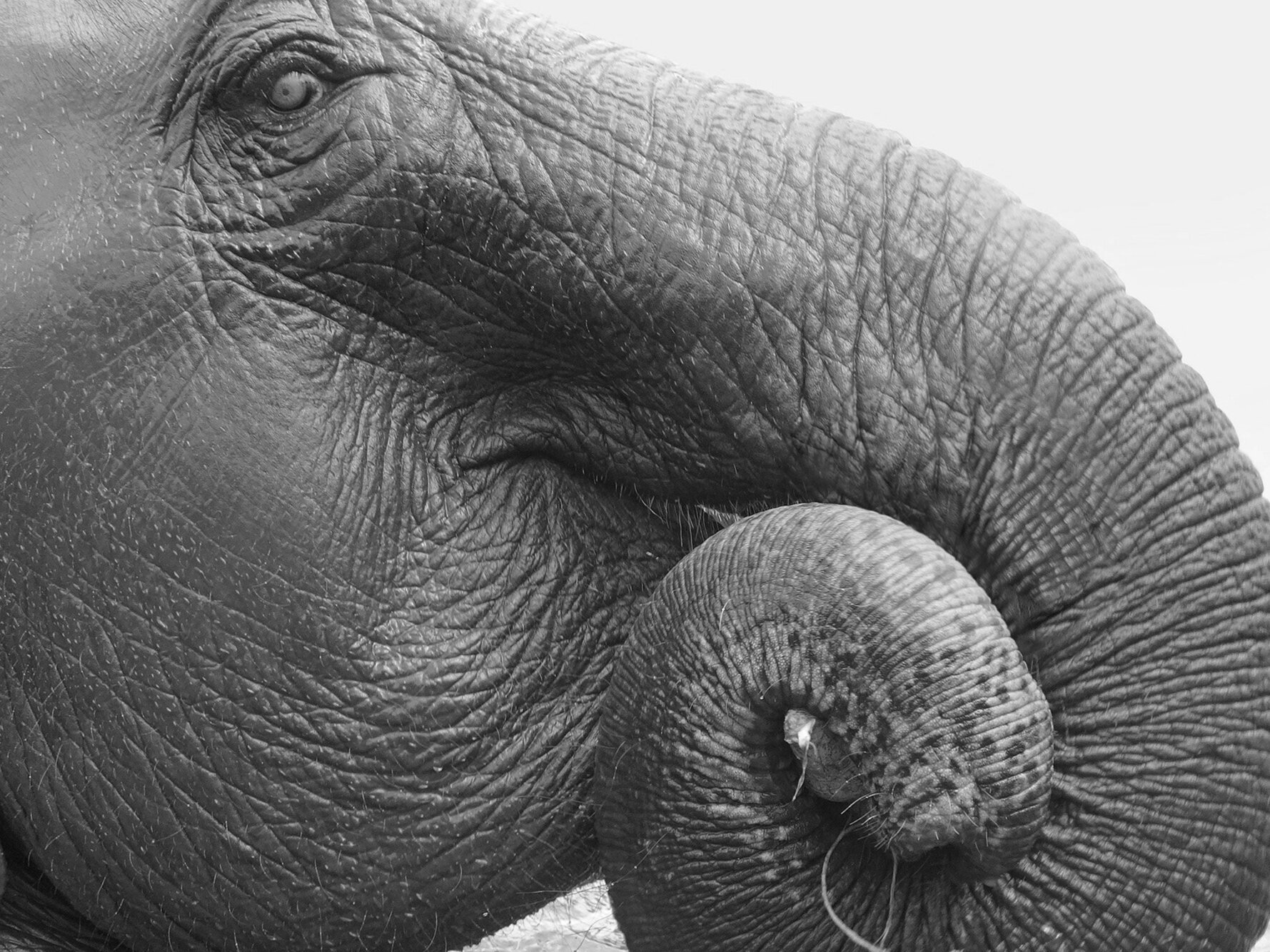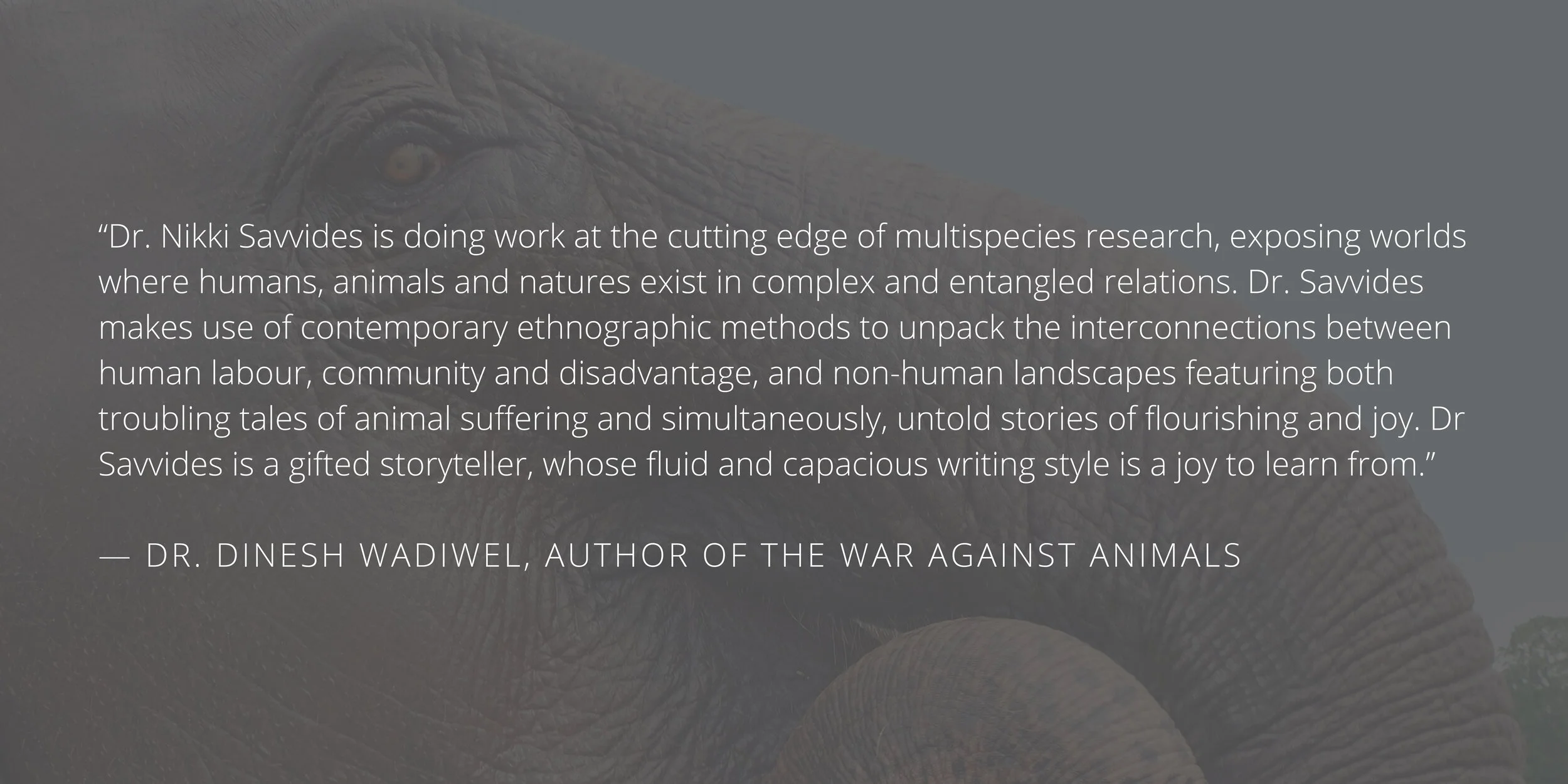“my grEAT PASSION IS THE WELFARE AND CONSERVATION OF Thailand’s captive elephants.”
Dr. Nikki Savvides
is an Australian author who writes about animals and environmental issues, with a special focus on the welfare and conservation of captive elephants in Thailand.
“ When I first visited Thailand, I had no idea that elephants would determine the course of my life and research for the next decade. What had captivated me so completely were the stories of elephants whose lives are marked with neglect and abuse, despite the great love tourists and Thais alike have for these charismatic creatures.”
— From “After the Forests: Thailand’s Captive Elephants and Their People” (forthcoming)
“At a time when anthropogenic change has altered nature irrevocably, finding the means to enact effective, ethical conservation and welfare efforts for elephants in captivity is essential.”

THAILAND’S CAPTIVE ELEPHANTS ARE ASIAN ELEPHANTS (Elephas maximus).
They are related to elephants found in other Asian countries such as India, China, Cambodia, Laos, Myanmar and Indonesia. There are around 3,000-4,500 elephants currently living in captivity across Thailand. It is difficult to estimate numbers due to inconsistencies in legal documentation.
An Asian elephant eats around 1.5-2.0% of its body weight every day, amounting to around 150-200kg of food!
CAPTIVE ELEPHANTS IN THAILAND ARE VALUABLE COMMODITIES DUE TO THEIR ROLE IN TOURISM.
An adult elephant in good health can cost around THB1,000,000, equivalent to US$30,000.
THERE IS CURRENTLY NOT ENOUGH AVAILABLE LAND IN THAILAND FOR ALL CAPTIVE ELEPHANTS TO BE RELEASED.
While small-scale rewilding efforts have been successful, these must be carefully managed to avoid human-elephant conflict. Ethical elephant tourism — in the form of sanctuaries and welfare/conservation projects — is the best solution for the largest number of elephants.
ELEPHANT KEEPERS KNOWN AS ‘MAHOUTS’ ARE MOSTLY MEN, AND MANY HAVE ANCESTRAL TRADITIONS WORKING WITH ELEPHANTS.
They are needed at sites in Thailand where captive elephants live, and many elephant welfare and conservation projects include mahouts in education programs and decision-making processes to benefit elephants. Properly trained mahouts who are welfare-focused are essential to ethical captive elephant management.
It is important to involve mahouts in elephant welfare and conservation programs. In investigating the lives and histories of mahouts, we can learn much about elephant captivity and what it would mean to find more natural habitats for Thailand’s elephants.

TESTIMONIALS











